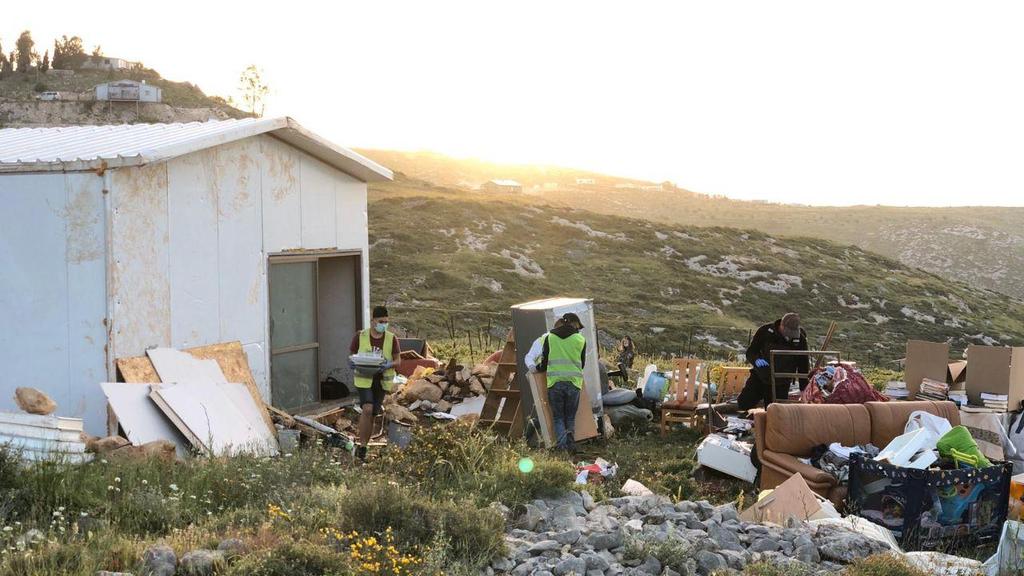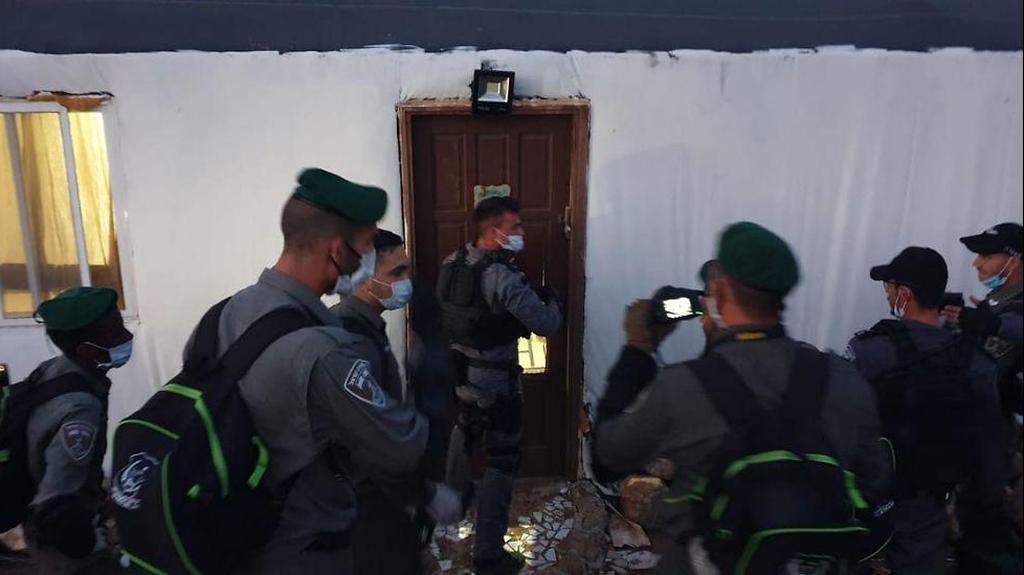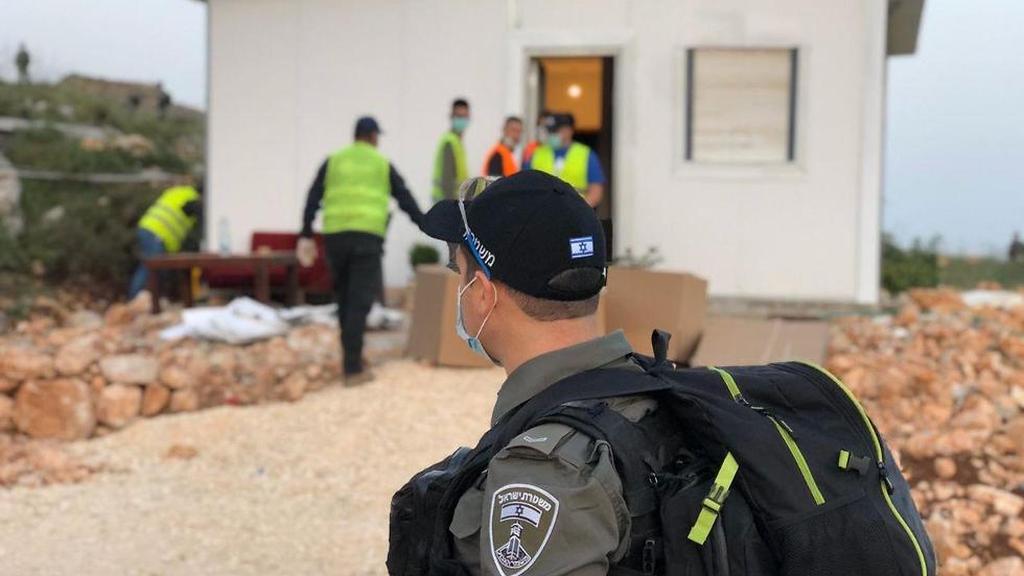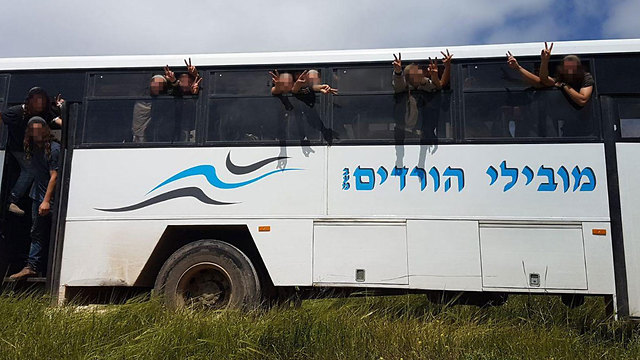Getting your Trinity Audio player ready...
Israeli security forces on Wednesday demolished six illegal structures near the flashpoint Yitzhar settlement in the northern West Bank.
The Civil Administration officials said four of the buildings were located in the Kipa Sruga and Tekuma outposts in Area C, while two others were in Kumi Ori in Area B.
The Oslo Accords bar Israel from issuing building permits for Areas B and C.
Security forces raze homes in Kumi Ori
One of the two illegal structures demolished in Kumi Ori belonged to the family of Neria Zarog, a far-right extremist. Zarog rebuilt his home almost immediately after it had been razed due to the lack of construction permits in January.
Zarog was arrested ahead of the demolition for refusing to evacuate the structure. His heavily pregnant wife who was at the house with Zarog was not detained.
The January razing of Zarog’s home took place a week after the High Court of Justice rejected a petition in which he argued that Israel had no right to demolish a structure in Area B because the territory is under the Palestinian Authority's civil control.
The court ruled that while Israel does not have the authority to grant building permits in that area, it can demolish illegal homes built by Israelis there.
Settlement officials condemned the demolition and blasted the government for green-lighting it in the midst of the coronavirus pandemic. The settlement called the measure a “price tag,” a term that refers to vandalism and other hate crimes carried out by Jewish ultra-nationalists.
In the midst of the demolition, far-right activist and Attorney Itamar Ben Gvir issued a statement saying that his legal assistant Hananel Dorfman had petitioned the High Court to order the forces to halt the razing.
Dorfman argued that the Civil Administration's action violated the Defense Ministry body’s own declaration earlier this month that it would refrain from demolishing populated structures for the duration of the pandemic.
Earlier this month, several hilltop youths residing in Kumi Ori came in contact with a COVID-19 carrier and were ordered to go into isolation.
They were taken along with over a dozen of their peers to a quarantine hotel in Jerusalem, which they refused. The group was then transferred to an alternative site in the Negev, but on the way wreaked havoc on the bus transporting them and attempted to flee the scene.
Eventually, the IDF agreed to establish an outpost for them in Metzoke Dragot, in the West Bank near the Dead Sea. The army supplied them with a large tent where the teens slept, a Beit Midrash tent for religious study, a tent for them to prepare food, showers, outhouses and a generator.
Less than a week into their quarantine, several Palestinians were attacked near the site. Assailants hurled rocks at them, doused them with pepper spray and set their vehicles on fire before fleeing the scene.
Police have opened a probe into the incident and were investigating whether the gasoline used to torch the Palestinian vehicles was the same fuel that the army had supplied the far-right activists to run the generator at their quarantine outpost.
A gag order prohibits the publication of further developments regarding the case.








